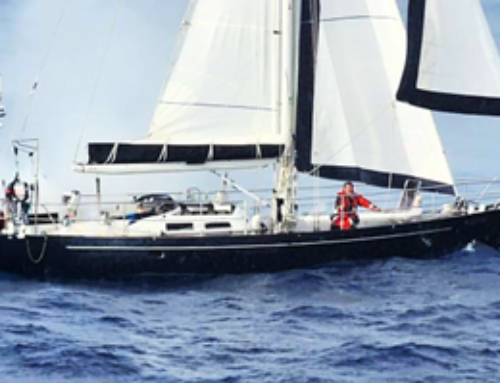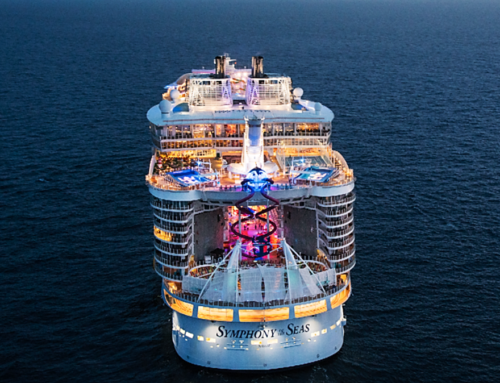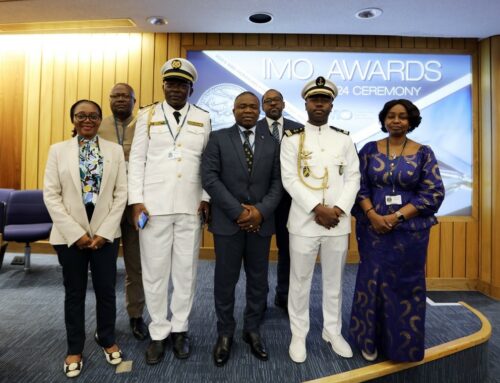The Legal Turbulence Surrounding the Sinking of the Superyacht S/V Bayesian
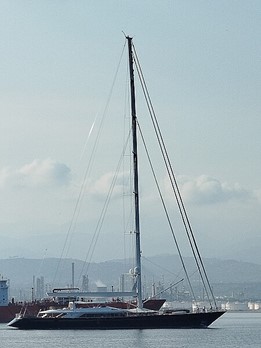 When it comes to the world of luxury yachts, the sinking of the S/V Bayesian—a superyacht enjoyed by the ultra-wealthy—has raised complex questions of international law. This stunning 184-foot vessel, worth an estimated $18 million, met her demise on August 19th, 2024 during a sudden storm and rapid sinking in the Mediterranean Sea off the Sicilian coast, claiming the lives of six passengers and one crewmember. The legal ripples resulting are now pulling in a variety of stakeholders, from yacht insurers to international authorities.
When it comes to the world of luxury yachts, the sinking of the S/V Bayesian—a superyacht enjoyed by the ultra-wealthy—has raised complex questions of international law. This stunning 184-foot vessel, worth an estimated $18 million, met her demise on August 19th, 2024 during a sudden storm and rapid sinking in the Mediterranean Sea off the Sicilian coast, claiming the lives of six passengers and one crewmember. The legal ripples resulting are now pulling in a variety of stakeholders, from yacht insurers to international authorities.
In June of 2024, the S/V Bayesian embarked on what was supposed to be a routine voyage off the coast of Italy. The yacht, owned by British tech mogul Mike Lynch, was equipped with state-of-the-art technology, featuring advanced stabilization systems, environmental sensors, and even AI-powered navigation. However, despite its advanced technology, the yacht encountered a sudden and catastrophic failure on the 19th of August, which led to its sinking within minutes. The sinking claimed the lives of Mike Lynch, his daughter Hannah, 5 of his wealthy passengers, and the yacht’s chef. For many, the sinking has left many questions.
Initial Investigations: Accident or Sabotage?
Early investigations suggest that a structural failure in the yacht’s hull could have triggered the disaster. However, given the yacht’s careful engineering design, experts are scrutinizing other possibilities. Sabotage and cyber-attacks have not been ruled out, especially in light of recent high-profile hacks targeting luxury assets of the wealthy.
The potential for sabotage introduces legal implications that go beyond even maritime law, pulling in elements of cybersecurity, international crime, or even espionage. If foul play is discovered, criminal investigations could ensue across multiple jurisdictions, given that the yacht was registered in the Cayman Islands, managed by a Monaco-based crew, and owned by a U.S. national.
The Legal Angle: Who Bears the Responsibility?
With the yacht now resting 50 meters below the surface of the Mediterranean Sea, the legal battle has moved to the surface. Yacht insurers are assessing whether the policy covering the S/V Bayesian includes provisions for such an incident. Was it an “act of God” (sudden circumstantial and unforeseeable failure), a design flaw, or human negligence? Each possibility leads to a different legal avenue, with massive financial stakes involved.
- Insurer Liability: The yacht’s insurance policy, likely underwritten by one of the top names in marine insurance, will come under scrutiny. Typically, superyacht policies cover loss due to accidents, but insurers may argue that a flaw in design or negligence could exempt them from paying out the claim. If sabotage or cyberattacks were involved, questions about whether these risks were specifically covered will arise, potentially leading to litigation between the yacht owner and the insurers.
- Manufacturer’s Responsibility: If structural failure is determined to be the cause, the yacht’s manufacturer could face hefty lawsuits. Superyachts of this caliber are often custom-built over several years, involving dozens of contractors and suppliers. Each of these entities could find themselves entangled in lawsuits claiming they contributed to the failure. Contracts will be scrutinized for clauses limiting liability and responsibility, with years of legal conflicts likely to follow.
- Crew Liability: Maritime law traditionally holds the captain responsible for the vessel’s safety. If the yacht’s crew is found to have been negligent—whether in maintenance or operation—the yacht owner could sue them, or they could face penalties under international maritime law. If cyber sabotage is involved, questions will arise about the crew’s digital vigilance and whether appropriate cybersecurity protocols were followed.
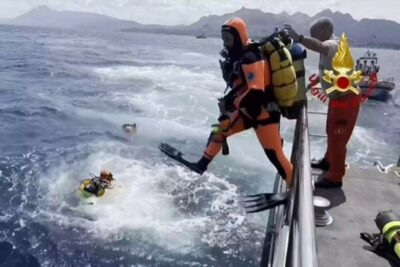 Jurisdictional Battles
Jurisdictional Battles
One of the trickiest aspects of the legal aftermath is the question of jurisdiction. The S/V Bayesian was registered in a tax haven, owned by a British citizen, and sank off the coast of Sicily, with numerous American citizens aboard. Different jurisdictions could have competing claims to conduct investigations, prosecute crimes, or settle civil disputes. Under international maritime law, the country of the yacht’s flag typically has jurisdiction (which here would be the UK), but with multinational interests at play, this case could see overlapping legal claims.
Italy, where the incident occurred, also many have grounds to assert jurisdiction, particularly if environmental damage from the sinking has affected its waters. Environmental lawsuits, often tied to oil spills or chemical leaks, could enter the fray if investigators find that pollutants were released from the yacht following the sinking.
Cybersecurity and Sabotage: A New Legal Frontier
If a cyberattack eventually is confirmed, the sinking of the S/V Bayesian could become a landmark case in maritime law. Traditionally, maritime law has been concerned with physical hazards like storms, piracy, and accidents. However, as superyachts become increasingly digitized, new legal challenges surrounding cybersecurity risks are emerging.
Owners of high-value yachts are prime targets for cyberattacks, whether for financial gain, political motives, or simple malice. The question of whether the S/V Bayesian was adequately protected against such risks, and whether any lapses contributed to its sinking, could set precedents for the future of cybersecurity in the maritime industry.
Litigation or Settlement?
Mike Lynch’s wife Angela Bacares, a survivor and legal owner of the S/V Bayesian, will likely face a choice between prolonged litigation and settlement. With the prestige of owning one of the world’s most famous yachts at stake, a settlement might be a faster way to resolve the matter. However, if larger principles—such as loss of life and legal precedence—are at play, Mrs. Bacares and other involved parties may opt to pursue litigation, even if it prolongs the controversy.
The sinking of the S/V Bayesian goes beyond the loss of a luxury yacht and several of its passengers. It opens up a Pandora’s box of legal issues spanning maritime law, international law, cybersecurity, and the responsibilities of yacht manufacturers and crew. While investigators dig deeper and lawsuits start to accumulate, this case is likely to shape the future of maritime law for years to come. What began as a mysterious disaster at sea may end up creating legal ripples that affect not only the owners of luxury yachts, but the broader marine industry as a whole.
We at the Herd Law Firm are proud to fight for seamen, maritime workers and passengers in all types of personal injury and death claims. As maritime personal injury attorneys (and sailors ourselves!) located in northwest Houston, we never waver in our commitment to help these maritime workers, passengers, and their families when they are injured or mistreated.
9/10/2024
Image Credit: Perini Navi Press Office and Vigili Del Fuco (Italian Fire and Rescue Agency)







